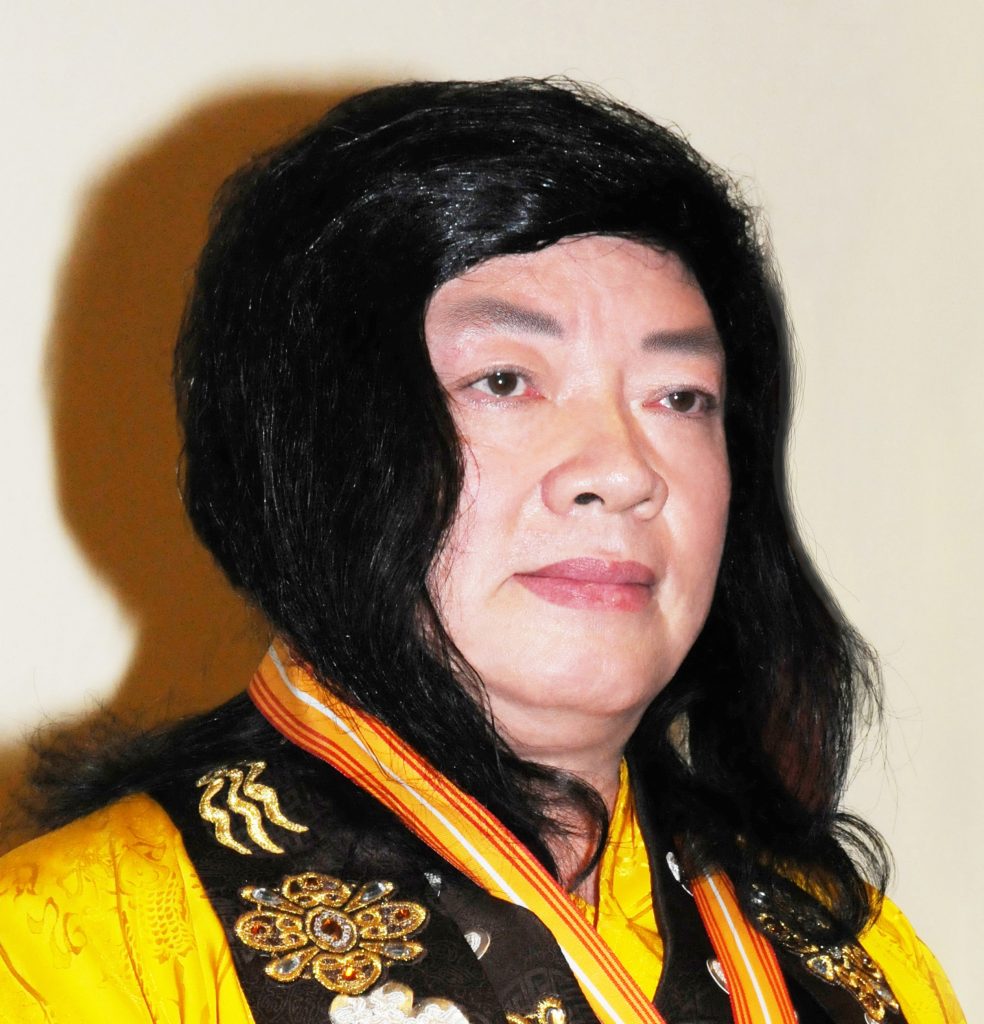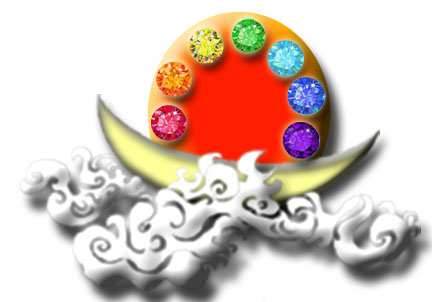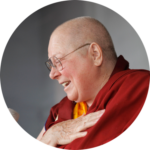
[The following combines my notes and understanding from listening to several English translations of the first two of three CDs on a discourse given by the H.H. Dorje Chang Buddha III in 2000 when He first came to America. Normally, we do not share our notes on listening to discourses, but this one is unique. It is not complete, but this is the part of the discourse that provides the foundation for the “SEVEN DHARMA“ learning system we have adapted to the LFBCS courses. Please regard this as reference because there are some principles that we need to understand. The first CD was 58 minutes long and the second 60.]
The Buddha Master told us to use the purest mind to listen to this.
There are many ways to cultivate in Buddhism and listening to discourses:
- Listen to dharma discourses and the CDs of dharma discourses given by the Buddha Master and other holy ones.
- Attend dharma assemblies and feel and sense the atmosphere. Have an awareness from the incense, the activity. Sense the Dharma Voice.
- Listen to professors teach dharma lessons at schools; learn from white boards and black boards.
- Listen indirectly to professors by staying outside the classroom (or auditing the course).
- Other audio and video recordings.
Be careful. Some dharma lessons are harmful and may even be Mara’s teachings and some slander the Buddhas and may lead to devolvement!
What should be listened to?
The Buddha Master told us that it is not just listening to any dharma lessons. They must be in accord with the teachings of the Buddha, the Tripitaka, and the commentaries of the true dharma masters and agree with the authentic dharma texts. These are true sources of Dharma Voice.
They can enlighten people, end disasters, enable you to enter the holy fruit of Bodhi. etc. or they can cause you to be poor, or sick, or break up families—even take you to the hell realm.
He then told us how to distinguish between the two types:
No matter if it is a lay or monastic teacher, high or low, if he or she does not have Bodhichitta or follow the Tripitaka and/or esoteric tantras, do not listen to them. They must have great awareness of Great Compassion.
Bodhisattvas are greatly compassionate and use their three karmas (secret practices of body, speech, and mind) to help living beings. They want to help living beings become liberated and attain accomplishment.
Their dharma lessons inform living beings, both human and non-human, on how to walk correctly on the path.
Every time they expound the dharma, they bring happiness, light, good luck, and joy to living beings. They make people feel comfortable. Their body, speech, and mind will all be happy.
They offer delight and praise in speech.
If the living beings feel depressed, sad, suffering, pain and they feel they need to repent it is not a good dharma lesson. Instead this is evil dogmas from Mara. They are not teaching dharma. Bodhisattvas want to make people happy. This is our true state of mind.
Disciplining Bad Behavior
Sometimes, a true holy one or master may cause living beings to suffer, but only very briefly— maybe one night. For example, Marpa’s treatment of Milarepa. A Master may use such a method to educate a student. Marpa immediately practiced dharma to empower Milarepa after he caused him to do difficult things. However, ordinary people cannot do this. Only a true Bodhisattva like Marpa can do this.
If the Buddha Master does not take action on an erring student, PaMu will deal with the student’s master.
It is the fault of both parents if the child does not do well. The child was not taught correctly. If disciples do not learn, it is the fault of the Master. PaMu wanted the Buddha Master to make this speech or she will discipline them.
The Buddha Master repents to his master that he has not been strict enough with his disciples. He vows to teach them well. The Buddha Master repents from the bottom of his heart to His master, the Great Sun Buddha, Mahavairochana.
Listening to the Buddha-Dharma is not enough
Just paying respect and following the crowd is not enough. Just bringing oil for lamps and incense to burn is not enough.
You light incense, go to the dharma assemblies to get benefits. You just attend and do not learn anything. You must not just listen. Learning Buddhism requires putting into practice what you learn. Learn from authentic Buddhist books, the Buddha Master’s discourses, PaMu’s books, and the Tripitaka. It is not that you heard it, but do you understand it and if you do understand it, do you apply it?
It is not just that you listened to and heard the dharma—did you understand it? Did you apply it? Did it benefit you? Did you use it?
You must understand the sutras
Shakyamuni Buddha first turned the Dharma Wheel in Deer Park. This gave us the 37 Paths to Enlightenment.
In later years Shakyamuni Buddha did say, “I expounded dharma for 49 years, but I did not expound any dharma.” No dharma was spoken or to speak of. Reason is due to prajna. The theory of emptiness that means whenever we have or use language, it belongs to illusion. Contemplative mind is not genuine, but illusory.
FaLun Gong or Falun Dafa (Discipline of the Dharma Wheel) founder, Li Hongzhi, said the Buddha made a mistake. That is the reason He taught different doctrines later in His career. People were deluded by Li Hongzhi because they did not understand the dharma.
This does not mean He made a mistake when He first expounded the dharma or later even when He expounded the middle vehicle as the mind only—always practiced all teachings
What is Emptiness? Real meaning is prajna—the dharma nature of emptiness, but with language it is illusory—not true.
Mind should not seek outward. No form or appearance of anything. All five skandhas are empty.
Mind is not contaminated by things.
Emptiness of the four great elements does not mean the sky or the absence of something. It means not being attached. We do not have a better term to describe it. Mind is not contaminated—that is emptiness. The four great elements of wind, fire, water, and earth are false. They are empty.
Emptiness does not mean complete absence of anything or that nothing exists. That is nihilism.
Pure mind does not “PULL” anywhere. It is also clean—has no impurities. Pure mind is free of form. Hears all sounds and sees all from the past, present, and future at the same time. Not focusing on any point. That is the truth.
Do not have “Contaminated” mind—that is pulled by things.
“Mind should not rest or abide anyplace.” From the Diamond Sutra. We use language to describe dharma, but don’t think that that is dharma. It is even not attached to the state of generating anything. That is the supreme dharma.
All equal; past, present, future; all are equal. Mind is not focused on any point. Does not rest on anything.
Mind does not move or differentiate. If it does, it is a contaminated mind.
Mind is seeking outward. Mind does not rest on or is attached to anything. Mind is true suchness. Boundlessness cannot be described.
How do we expound dharma? We use language! Because we make distinctions such as he is fat, skinny, male, female, old, young, etc. Mind analyzes this way we are seeking outward. But the real truth cannot be described by language. We need the mentality of an ordinary being to expound the dharma.
Expounded the dharma for 49 years, yet there is no dharma to be expounded. The state of the Buddha cannot be spoken. The state of a Buddha cannot be expounded.
Not contaminated by six dusts. Holy ones have non-moving mind.
For example, two groups arguing over a sail. Is the sail moving or the wind moving? Sixth patriarch—neither, it’s your mind that is moving. Ordinary being has a mind that can be “pulled” or moved. The holy ones are not moved.
Another example is the story of Su Dongpo (Su Shi) and the Chan Master Foyin in eleventh century Guazhuo, China.
Because the Buddha expounded it, we must use language, but in absolute truth there is no dharma to expound.
Li Hongzhi felt that the Great Buddha statue in Hong Kong had not been properly consecrated. He said he would cover the statue with his dharma body. He also said that his dharma body was bigger than the universe. However, the dharma body has no appearance. How could it be used to cover statue?
Sin is the differentiation of mind consciousness.
Falun Gong Founder Li Hongzhi said that the Buddha did not see thru the universe. However, since people did not learn from the sutras, they could not tell that he was a charlatan.
In a small universe, it should be easy to see its boundaries, but this is boundless. The universe cannot have a boundary. Just look at the nature of the term boundless. Buddha refers to a limitless, boundless universe.
Listen to the true dharma, and do not waste your time listening to terrible false stuff. True dharma will benefit you.
There are five kinds of tantric initiations.
Initiation requires a ceremony. I will transmit Great River Mahamudra, many kinds of Mahamudra, Mahamudra of Bightness, etc. all for manifesting the emanation and reward bodies.
Mostly we need to attain highest initiations to attain perfect liberation. You must listen to correct dharma lessons.
Instructions on the “Seven Dharmas”
His Holiness also offered the following instructions known as the “Seven-Dharmas” on how disciples should listen, stressing that once, even several times, are not enough.
Once is not enough. Listen repeatedly.
First time you get the concepts: listen to the Vajra master, not an ordinary master.
Need to read “Karmic condition/affinity between master and disciple Must Read”—One hour discourse.
Second time: Listen to the questions raised by fellow students. What did the master say, what did my brothers say? And what did I miss the first time. What questions were raised: Know the names of the people involved in asking questions. How many questions? How did the master explain the answers? What is the most precious essence?
Third time you grab a notebook and start to take notes. Record some info. Again, what questions were raised, answers given by master?
Not enough to only listen once or twice. What is the main essence? Who are you? You are very pitiable.
Fourth time you check your notes to see what you missed. What is the precious essence?
Fifth time you discuss your notes with fellow students. How many attended discussion? Have a debate; Write your own summary or have a discussion. Big scale or small scale?
Sixth time you debate with other students. (Fifth and sixth can be reversed) Maybe you write your summary this time.
KNOW THE KEY CONCEPTS:
Sixth time is not a debate. You just write a summary of what you learned. You must do this.
Seventh time you spread the teachings to other living beings. It is not “listening to Dharma” until you do this.
Energize yourself: Every student can become a master if they do this. May (usually) need to listen 21 times.
You are only cheating yourself if you do not follow these steps. Follow the Buddha Master’s method. Listen—comprehend—debate—write your script—and act in accord.
What else do you need to study?
Some students went to the street for fun. They did not get the message. Said they had already heard it, didn’t need to hear it again. Just because you listened to lessons and read the sutras you still have white flint stone. White flint stone does not make any sparks. Just listening once does not give you understanding; many students know nothing. You need to also study the six commentaries by Dorje Pamu. You need to study these.
[NOTE: Only one of Dorje Pamu’s books The Dharma that Every Buddhist Must Follow has been translated. The others include material from other Buddhist classics that the Buddha Master recommend we study in Learning from Buddha:“If you are a master with disciples, you must at least study in depth some sutras and commentaries as a foundation, such as the Heart Sutra, the Diamond Sutra, the Avatamsaka Sutra, the Lotus Sutra, the Shurangama Sutra, the Agama Sutras, the Hetu-Vidya Treatise, the Madhyamaka Treatise, the Abhidharma-kosa Treatise, the Prajna Treatises, the Precepts and Discipline Treatise, the Consciousness-Only Treatise, the Lam Rim Chen Mo, the Bodhisattva-charyavatara Treatise, and others. Doing so will reduce the possibility of leading others astray in the process of teaching.”
Karmic forces interfere with learning
Karmic forms from beginningless time will arise to create demonic hindrances to cause obstructions. You end up with little knowledge. You seem to know, but you do not know after one hour’s sleep. Karmic forces interfere. When we listen to dharma, some fall asleep. Some forget immediately or soon thereafter. After hearing someone would have their crown opened with a very bright power happening in 10-20 minutes, one woman wanted to see the ceremony. She used her fingers to hold her eyes open until they were black and blue, but she still fell down and fell asleep. When she woke up the dharma was finished. She was one of the Four Tigers in Chengdu. The Buddha Master practiced this the day He moved from Chengdu to Shenzen.
You must listen to the Dharma according to the Dharma!!!
Go through the six procedures and practice seven times.
Take Dorje Pamu’s Dharma That Every Buddhist Must Follow and be able to recite what each chapter includes: Parrot back the content. Don’t just count other people’s treasures—make them your own.
Lesson given on the Art of Tea. Example of complexity also applies to Buddha-Dharma.
Learn through study; analyze, research to find root and origin.
Great Doubt leads to Great Enlightenment.
Small Doubt leads to Small Enlightenment.
No Doubt leads to No Enlightenment.
Analyze your own doubt and impediments.
Research what Bodhisattvas say.
Remember, even our own rinpoches misconstrued Pamu’s instructions.
CLICK for link to LFBCS Course D01-Listening to the Supreme & Magnificent Dharma that includes this discourse.




Add comment